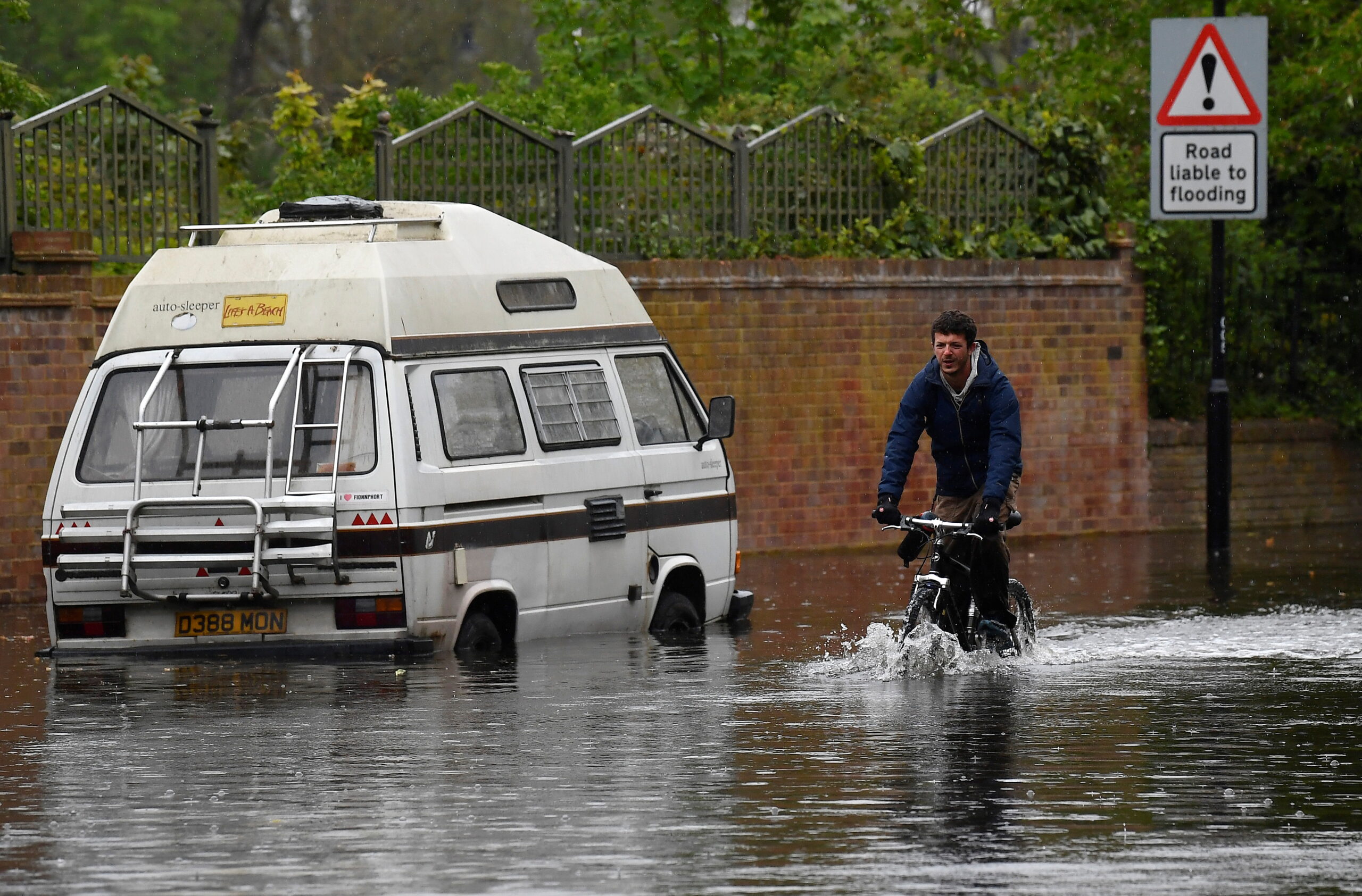I Can No Longer Bury My Head in the Sand About Climate Change
It is more than past time to get serious about the climate, but there is no time like the present.
by Moya Lothian-McLean
21 July 2021

Lovely weather we’re having, isn’t it? On Tuesday, the Met Office issued its first ever “extreme heat warning”. The caution is part of a new system, implemented in June, after climate experts warned that the UK was not properly prepared for the “growing risks” posed by more regular heatwaves. Now, the system is being deployed in response to this week’s expected highs of 33C across Wales and southern England.
⚠️⚠️ Amber Weather Warning issued ⚠️⚠️
Extreme Heat across parts of South Wales, West Midlands, southern and southwestern England
Valid until 23:59 Thursday
This is the first ever Extreme Heat Warning issued#Heatwave
Latest info 👉 https://t.co/QwDLMfRBfs
Stay #WeatherAware pic.twitter.com/bTHUyFL6uL— Met Office (@metoffice) July 19, 2021
Here’s a confession: I shy away from thinking about climate change. I don’t think this is particularly unusual – much has been written and said about the paralysing impact of climate anxiety and its (ironic) consequence of preventing people from allowing themselves to consider its full implications. Even so, it feels unfashionable to admit that, as a young person who is generally ‘plugged in’ to the world around me, I feel scared and helpless to a degree that I have not devoted my energies to fighting the great crisis of our times. It is a great privilege to be able to shut my brain off when it starts to comprehend the full scale of the damage we have done to this planet. It means I’m not uncomfortable enough yet.
Perhaps these thoughts are similar to the mindset of Monica Decker, a resident of Arloff, a small village in western Germany. After floods ripped through Arloff last week, killing several people, Decker’s grief was captured by a Sky News crew. “You don’t expect people to die in a flood in Germany,” she told them. “Maybe in poorer countries, you could understand it, but not in Germany.”
Naturally, her words went viral. Decker had said the quiet part out loud; she had voiced the expectation that climate change will not adversely affect wealthier, ‘developed’ nations, especially those in the northern hemisphere; that countries like Germany (one of the world’s top polluting nations) would be able to adapt to and stave off the consequences of a shifting climate using their cash. But the flash floods that left at least 120 people dead in North Rhine-Westphalia prove this is not the case.
The same goes for London as well. On 13 July, floods swept through businesses and homes in the west of the city, with the damage caused set to displace some households for up to six months. Flooding experts warned that this was not a one-off.
Serious flooding in West London #flooding #londonflooding #floods pic.twitter.com/aPmpppvP2U
— W City Youth Theatre (@wcytheatre) July 12, 2021
“We’ve done this to ourselves,” Mary Dhonau, former CEO of the National Flood Forum, told the Guardian. “We’ve paved over the equivalent of 22 Hyde Parks by digging up our gardens so we can park in them. We’ve built super-basements, we’re expecting drainage and sewer systems hundreds of years old to cope with massively increased population sizes, and, of course, there’s climate change.”
There are so many ways to frame an analysis of the climate crisis. We can talk in terms of racial capitalism, of gender, of the ‘developed’ versus the ‘undeveloped’, of political ideologies, of anything really. To me, this just speaks of how horribly unifying the issue is. The fact it can ally people across the political spectrum, at a time when polarisation is at its peak, speaks volumes.
No, climate change won’t impact everyone in the same way, but, as the events of the past two weeks have shown us, western countries are not anywhere close to being ‘safe’ from its ill effects. This, of course, should not make any difference to our commitments to climate harm reduction – or speed up the various pledges made towards facilitating a sustainable future. But it will, for the same reason that my mind can no longer shy away from the problem just because it is terrifying: because now we too are experiencing discomfort.
As comedian Bo Burnham recently sang in his climate anxiety anthem, That Funny Feeling, “the ocean is at the door, there’s summer air in early fall”. Climate change has posed fatal consequences for millions already. Now, as the July heat curdles further into dread, we must avoid falling further into the defeatist embrace of climate apocalypticism because that kind of thinking is also a privilege; to sit back and believe there is nothing to be done. It also is categorically untrue. There is plenty; climate activists have been instructing us on exactly what for years.
So yes, recycle, and get a bike if you can, but more importantly: lobby the government, join a climate action group, pay attention, face your fears. I am speaking to myself here as much as anyone. And to those of you who are already far along in this process – which many of you will be – ignore this plea. But for the others, the ones like me who are aware but have been too scared – or too shielded – to fully open our eyes to the sun’s unceasing glare; well, no more. It is more than past time to get serious about the climate, but there is no time like the present. And, unless we crack on, there never will be again.
Moya Lothian-McLean is a contributing editor at Novara Media.


